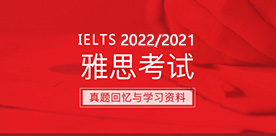劍橋雅思15Test2寫作Task2范文及解析
2021/1/14 17:48:51來源:新航道作者:新航道
摘要:很多雅思考生一直想要?jiǎng)蜓潘?5寫作資料,但是卻總是找不到,現(xiàn)在烤鴨們不用擔(dān)心了,上海新航道雅思小編為大家馬上帶來關(guān)于劍橋雅思15Test2雅思寫作Task2范文及解析,供大家參考。
很多雅思考生一直想要?jiǎng)蜓潘?5寫作資料,但是卻總是找不到,現(xiàn)在烤鴨們不用擔(dān)心了,上海新航道雅思小編為大家馬上帶來關(guān)于劍橋雅思15Test2雅思寫作Task2范文及解析,供大家參考。
劍橋雅思15寫作Test2Task2題目:
In the future,nobody will buy printed newspapers or books because they will be able to read everything they want online without paying.
To what wxtent do you agree or disagree with this statement?
參考范文①:
Thestatement given describes, in my view, two different and separate elements, the first of which is whether people will move from printed material to online viewing and the second,if it is online will people actually pay for it.
Looking at the first part,I do firmly believe that printed newspapers and books are fast becoming a part of history.You only need to look at the public transport around the world. Previ- ously,it was a very common sight for commuters to read their newspapers on the way to work, whether these were the broadsheets or the tabloids. These days, these have all but been replaced by smart phone accessing the same papers online.I myself have not read an actual printed newspaper in many years. Instead I simply access any news I want for the relevant app on my phone.
The second section of the statement refers to the fact that people will be able to read anything they want for free, which I disagree with. Online newspapers still charge a subscription for their service so, although the medium has changed in the delivery of the news, the price hasn't. With re- gards to other printed material, books and the like, again technology exists to prevent unauthorised use and distribution. Basically, what this means is that you still have to buy the book even though you then read it on your Kindle or smartphone.
In conclusion then,although I do believe the medium will change, and indeed has changed,I do not think that because it is online,it is free. Ialso believe that it shouldn't be. Authors,publish- inghouses and newspapers need to be paid otherwise the whole industry will dry up and nothing would be available
在我看來,此觀點(diǎn)包含了兩個(gè)不同層次的問題。第一個(gè)問題是人們是否會(huì)從購買印刷讀物轉(zhuǎn)向在線閱覽;第二個(gè)問題是,如果選擇在線閱覽,人們是否真的會(huì)為此付費(fèi)。
針對(duì)第一個(gè)問題,我堅(jiān)信紙質(zhì)報(bào)紙和書籍正迅速地成為歷史。只需要看看世界各地的公共交通工具就知道了。從前,通勤者在上班的路上看報(bào)紙是很常見的,無論是大報(bào)還是小報(bào)。如今,這些報(bào)紙都被智能手機(jī)所取代,用手機(jī)可以在網(wǎng)上看同樣的內(nèi)容。我自己也已經(jīng)很多年沒有看過一份印刷的報(bào)紙了,而是通過手機(jī)上的應(yīng)用程序?yàn)g覽我想看的新聞。
第二個(gè)問題是說人們可以免費(fèi)閱讀任何他們想看的東西。這一點(diǎn)我不贊成。在線報(bào)紙仍然對(duì)其服務(wù)收取訂閱費(fèi),因此,盡管新聞的傳播媒介發(fā)生了變化,但價(jià)格卻沒有改變。像書籍之類的印刷產(chǎn)品,現(xiàn)有的技術(shù)可以防止其未經(jīng)授權(quán)就開始使用、傳播。從根本上說,這意味著即使你在Kindle或智能手機(jī)上閱讀,仍然需要購買這本書。
總之,雖然我相信媒介會(huì)改變,而且確實(shí)已經(jīng)改變,但我不認(rèn)為因?yàn)樗窃诰€的就該免費(fèi),我也認(rèn)為不應(yīng)該如此。我們需要給作家、出版社和報(bào)社支付費(fèi)用,否則該行業(yè)就會(huì)枯竭,屆時(shí)任何新聞信息都無法獲取。
參考范文②:
The vast array of online versions of print media that are readily available on various devices have led many people to believe that print media will disappear entirely in the future.This is based on the notion that since online media will be free, people will not need to buy physical newspapers or books anymore.While I can understand how one may come to this assumption,I do not fully agree with it.
With each passing year,there are certainly more devices that are handheld,internet-capable,and relatively inexpensive.Tablets by companies like Apple,e-readers,and even large smartphones have made leaps and bounds in the way we can access the written,or typed,word.E-books are far cheaper than their physical counterparts,and the price of a single print magazine can cover almost a full year subscription to most online counterparts.Online versions also have the advantage of being more frequent than their physical versions,since a publishing company does not need to spend the actual time printing and delivering its books,magazines,or newspapers.
Yet,there is a certain quality to physical print media that the E-versions simply cannot capture. For one thing,the tactile quality of a book or magazine gives it an intrinsic value: people own that book or magazine; it is theirs. An e-book only exists on a screen. There is also the collectability factor of physical books. For instance,there are limited runs of certain volumes with unique cover artwork or binding materials which readers may fìnd desirable.
It is also worth pointing out that there is no evidence to indicate that online reading material will be free simply because it is online. Admittedly, many websites are free to read because they run on advertising revenue, but serious publications such as The Wall Street Journal and The Economist still charge a subscription fee for their online versions. Thus,the "free"aspect of online media is less of an issue than the accessibility aspect.
All in all,there will be a distinct transition from print to digital format. Many newspapers and magazines have already made a move and are operating primarily through their websites,with only limited paper sales, However, there wil still be a market for printed books,if for no other reason than the ability to decorate one's shelves.
印刷媒體的在線版本在各種設(shè)備上隨處可見,這使得許多人認(rèn)為印刷媒體將在未來完全消失。這是基于這樣一種觀念:既然網(wǎng)絡(luò)媒體都將免費(fèi),人們將不會(huì)購買紙質(zhì)版報(bào)紙或書籍。雖然我能理解人們?nèi)绾蔚贸鲞@樣的猜測(cè),但我并不完全同意。
隨著時(shí)間的流逝,確實(shí)有越來越多的掌上設(shè)備,不僅能夠上網(wǎng),而且相對(duì)便宜。蘋果等公司的平板電腦、電子閱讀器,甚至是大型智能手機(jī),使我們書寫文字、打字的方式有了質(zhì)的飛躍。電子書比實(shí)體書便宜得多,而且一份印刷雜志的價(jià)格足夠支付大多數(shù)在線版本一年的訂閱費(fèi)。在線版本還有一個(gè)優(yōu)勢(shì),就是比實(shí)體版本更新頻繁,因?yàn)槌霭婀静恍枰〞r(shí)間印刷和發(fā)行圖書、雜志或報(bào)紙。
然而,實(shí)體印刷媒體的質(zhì)量是電子版本不可企及的。首先,一本書或雜志的實(shí)體性賦予了它固有的價(jià)值,即人們擁有這本書或雜志,這屬于他們。電子書只能在屏幕上閱讀。其次,實(shí)體書還可以收藏。比如,有一些限量發(fā)行的書,讀者可能會(huì)喜歡封面上獨(dú)特的裝飾或裝訂材料。
同樣值得一提的是沒有證據(jù)表明在線閱讀材料僅僅因?yàn)槭窃诰€的就可以免費(fèi)。誠然,許多網(wǎng)站可以免費(fèi)閱讀,因?yàn)樗鼈兛繌V告收入運(yùn)營。但正規(guī)的出版物如《華爾街日?qǐng)?bào)》和《經(jīng)濟(jì)學(xué)人》仍然對(duì)其在線版本收取訂閱費(fèi)。因此,網(wǎng)絡(luò)媒體的“免費(fèi)”遠(yuǎn)不像其可讀性一樣夠得上是威脅。
總而言之,從印刷到數(shù)字版將會(huì)有一個(gè)明顯的轉(zhuǎn)變。許多報(bào)紙和雜志已經(jīng)采取措施通過網(wǎng)站運(yùn)營,僅保留少量紙版發(fā)行。然而,即使僅僅是為了裝飾書架,紙質(zhì)書也仍然會(huì)有市場(chǎng)。
小編為大家?guī)黻P(guān)于《劍橋雅思15真題寫作》供大家閱讀參考,新航道雅思資料頻道將第一時(shí)間為考生發(fā)布最全、最新、最專業(yè)的雅思資訊及雅思考試資料及機(jī)經(jīng).
相關(guān)閱讀:
免費(fèi)獲取資料
熱報(bào)課程
- 雅思課程
| 班級(jí)名稱 | 班號(hào) | 開課時(shí)間 | 人數(shù) | 學(xué)費(fèi) | 報(bào)名 |
|---|
免責(zé)聲明
1、如轉(zhuǎn)載本網(wǎng)原創(chuàng)文章,情表明出處
2、本網(wǎng)轉(zhuǎn)載媒體稿件旨在傳播更多有益信息,并不代表同意該觀點(diǎn),本網(wǎng)不承擔(dān)稿件侵權(quán)行為的連帶責(zé)任;
3、如本網(wǎng)轉(zhuǎn)載稿、資料分享涉及版權(quán)等問題,請(qǐng)作者見稿后速與新航道聯(lián)系(電話:021-64380066),我們會(huì)第一時(shí)間刪除。
全真模擬測(cè)試
雅思動(dòng)態(tài)

DeepSeekx雅思官方:中國考生...
制作:每每







